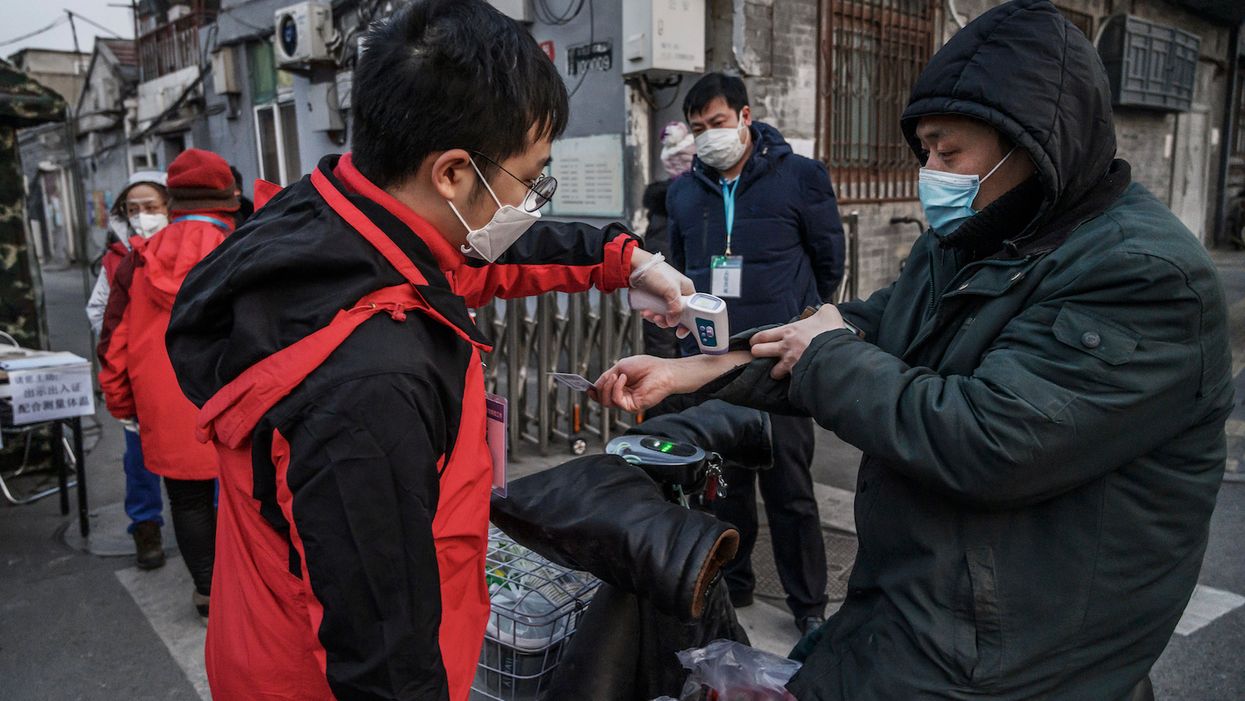
Kevin Frayer/Getty Images

Stigma and persecution
China is well-known as a surveillance state. Citizens are tracked constantly under normal circumstances, and the spread of the dangerous coronavirus throughout the nation has created increased motivation for the government to track every person's every move.
Now, the government is pushing a smartphone app that determines whether an individual has been in close contact with someone known to have been infected with the coronavirus. According to MIT Technology Review, the app not only creates privacy concerns, but social ones, as well.
The app is a "close contact detector." Users enter their name, phone number, and ID number, and then scan a QR code with their smartphone. The app then uses data the government has collected (potentially through transit and health authorities) to determine whether the user has been in close contact with someone with coronavirus.
If a user has been in contact with the coronavirus, the app recommends self-quarantine and suggests contacting local health officials. However, it doesn't take a huge leap to imagine that this government-created app can send data to officials, alerting them of a potentially infected person who may need to be quarantined whether they like it or not.
The questionable accuracy of coronavirus tests also creates problems for this app. There have been reports of false negatives, which means the app may tell a person that they haven't been in contact with any infected people, potentially causing them to let their guard down when they shouldn't.
Another issue is the impact such an app could have on Chinese society, creating an atmosphere of isolation and suspicion that will be exacerbated by Chinese perceptions of dealing with contagion and contagious people. From MIT Technology Review:
Residents of Wuhan, the central Chinese city at the epicenter of the outbreak, are already treated as pariahs in China itself. The authorities have hunted people from the city, encouraging citizens to inform on each other and offering bounties, with prejudice becoming so acute that even government officials called for people to show more understanding. An app that holds such detailed information, combined with what Lynteris calls the long history of public shaming in China—such as "struggle sessions" that publicly humiliate a target, or meetings in which citizens accuse each other of wrongdoing—could turn negative quickly. With social media now acting as China's town square, there is no more effective place to do this, he explains. Though the app is not public, he says, it reasonable to expect that the information may be gleaned to identify or expose people who are "hiding" contact histories that they may be unaware of.